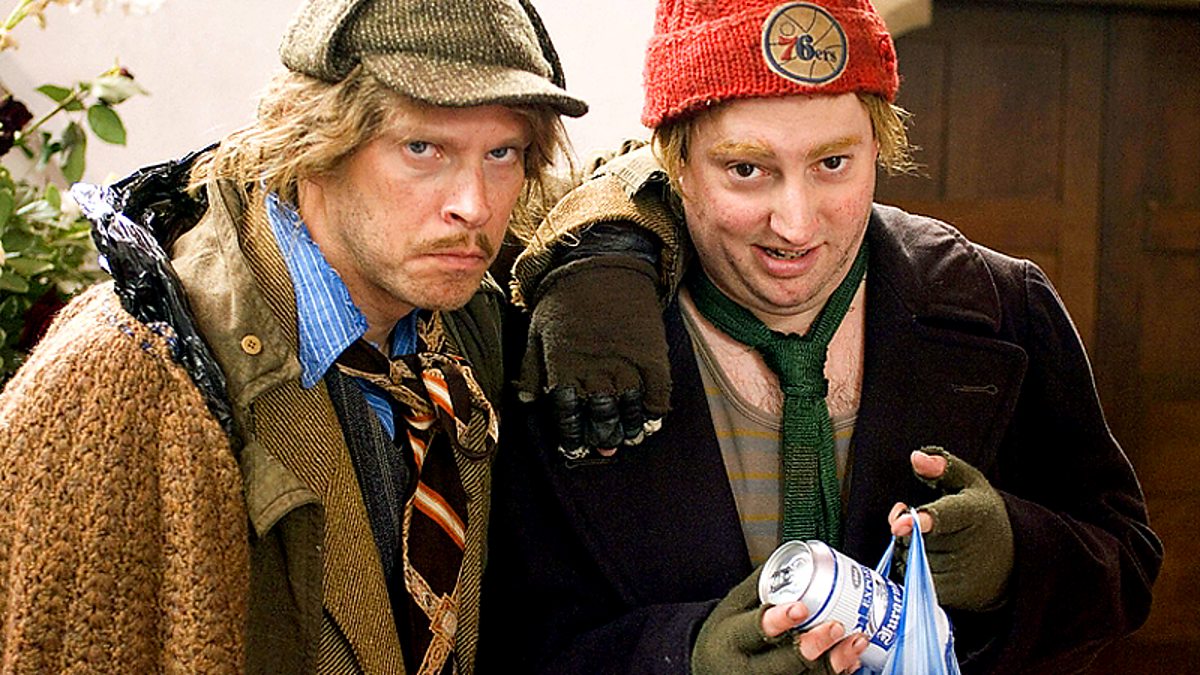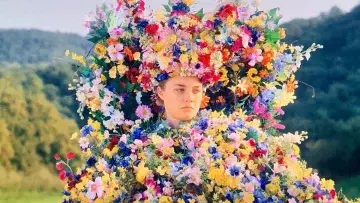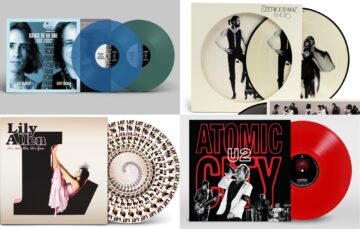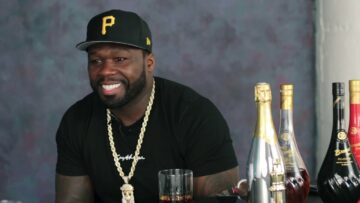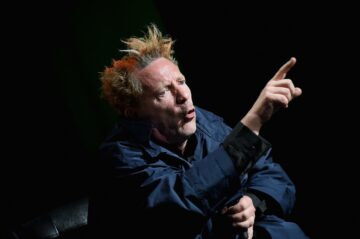Has anyone actually watched Deep Fake Neighbour Wars yet? In the interest of staving off the cultural end times, I hope not. Appropriately for one technology poised to cause some kind of societal breakdown, it’s an idea you’d swear could have been cooked up by an AI. A parody of the long-running New Zealand format Neighbours at War, the show takes a series of celebs and plasters their faces (alarmingly convincingly) onto some up-and-coming comedians’ bodies. Finally, we can watch Idris Elba argue over a broken roof tile without his consent. Think Spitting Image or ill-fated CBBC sketch series Hedz, but without a moral compass.
But Deep Fake Neighbour Wars, existentially depressing as it is, is actually the inheritor of a fine comic tradition. It is, technically, a sketch show.
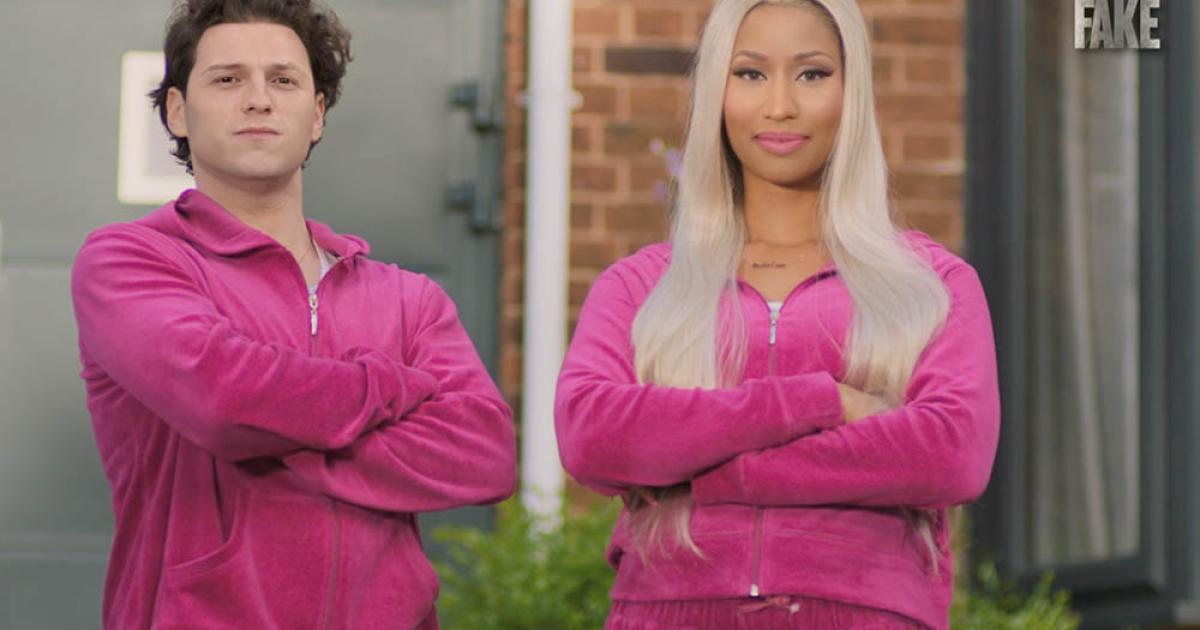
Deep Fake Neighbour Wars. Credit: ITV
In recent years, the sketch show has become a bit of a rare beast, but it wasn’t long ago that they arguably made up most of the defining comedy on British TV. From the late 90s and into the early 2000s, the BBC alone commissioned The Fast Show, Armstrong and Miller, Big Train, The League of Gentlemen, That Mitchell and Webb Look, two separate shows from Lee and Herring and a barrage of others long lost to the depths of the BBC archive.
For an idea of how influential these shows could be, take a look at a single episode of the 2000 sketch series Bruiser. Starring Olivia Colman, Martin Freeman, David Mitchell, Robert Webb and Matthew Holness, the series now plays out like a who’s-who of not only 2000s UK comedy talent but two of our most prolific acting exports in Freeman and Colman. And this was a show which, even when sketch comedy was arguably at a new height, nobody saw.
Fast-forward to the 2010s, however, and the British sketch show has gone the way of the parrot.
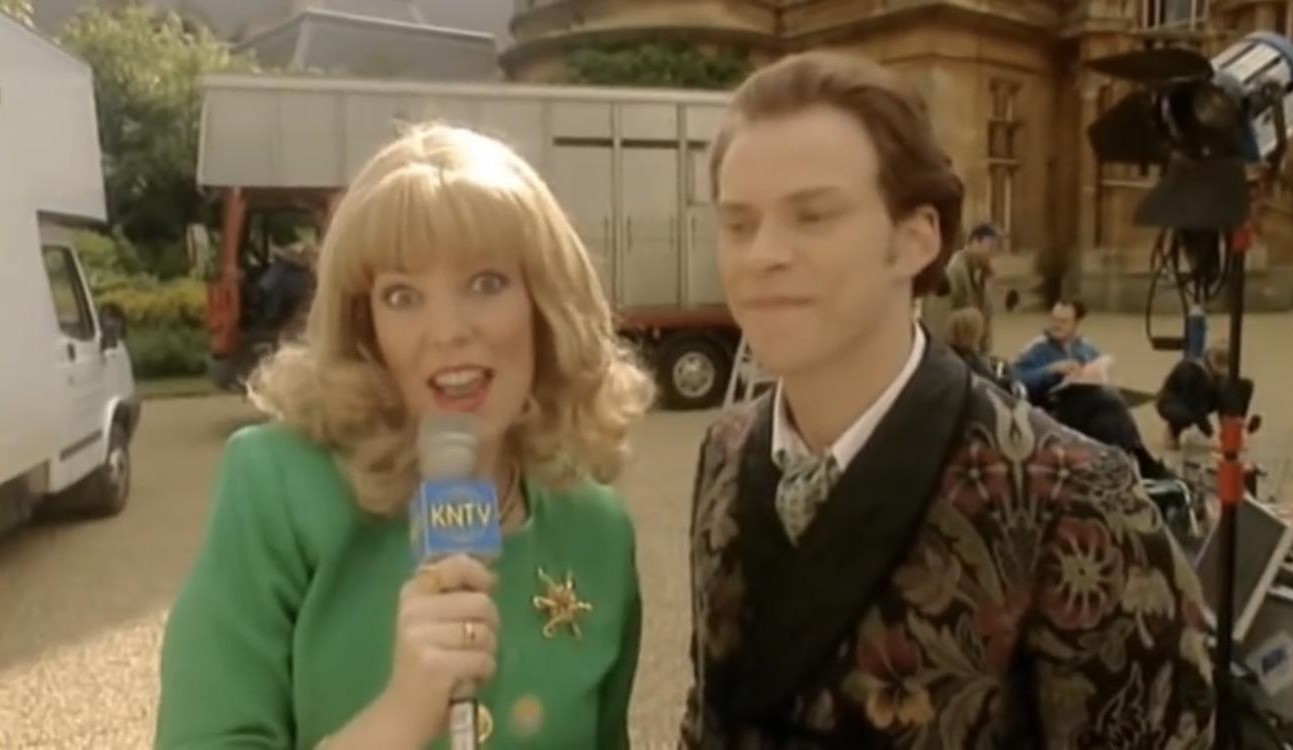
Bruiser. Credit: BBC
That seems odd because, in a lot of ways, sketches themselves have never been more popular. Something like a billion people a month use TikTok, a platform specialising in short scenes with some funny bits. Instagram and Facebook reels offer something similar. And what is a vine compilation if not a sketch show written by committee? Scroll through Twitter long enough, and you’ll even find the odd antique: a clip of David Mitchell worrying about Nazis or a screenshot of the cast of Horrible Histories.
That’s not even to say that sketch shows in general aren’t making it into the public consciousness, though they are pretty rare. US offering I Think You Should Leave With Tim Robinson has joined the ever-dwindling ranks of Netflix shows to make it past a second season. At the same time, Australian comedy trio Aunty Donna’s Big Ol’ House of Fun built upon a large online following to break the UK Netflix top 10 on its release in 2021.
From a British perspective, though, the sketch show hasn’t seen the same reinvention that shows like Hannah Gadsby’s Nanette or Bo Burnham’s Inside gave stand-up on a global stage. The tradition of the University Revue stretches back to the pre-Monty Python era. Still, ever since The Cambridge Footlights won the first Perrier Award at the Edinburgh Fringe Festival in 1981, the mental link between sketch shows and university comedy societies has been especially hard to shake. Back when the Fringe was the place to head-hunt up-and-coming comedy talent, this translated to many shows of the same sort. The middle-class, white male sort.
It’s a perspective which has caused the medium a spot of grief in recent years. David Walliams and Matt Lucas’s Little Britain and Come Fly With Me were removed from streaming services in 2020 in response to contemporary concerns over blackface. A shameful tradition stretching back to comedy’s days in the music hall, the incident portrayed a medium stubbornly unable to move with the times.
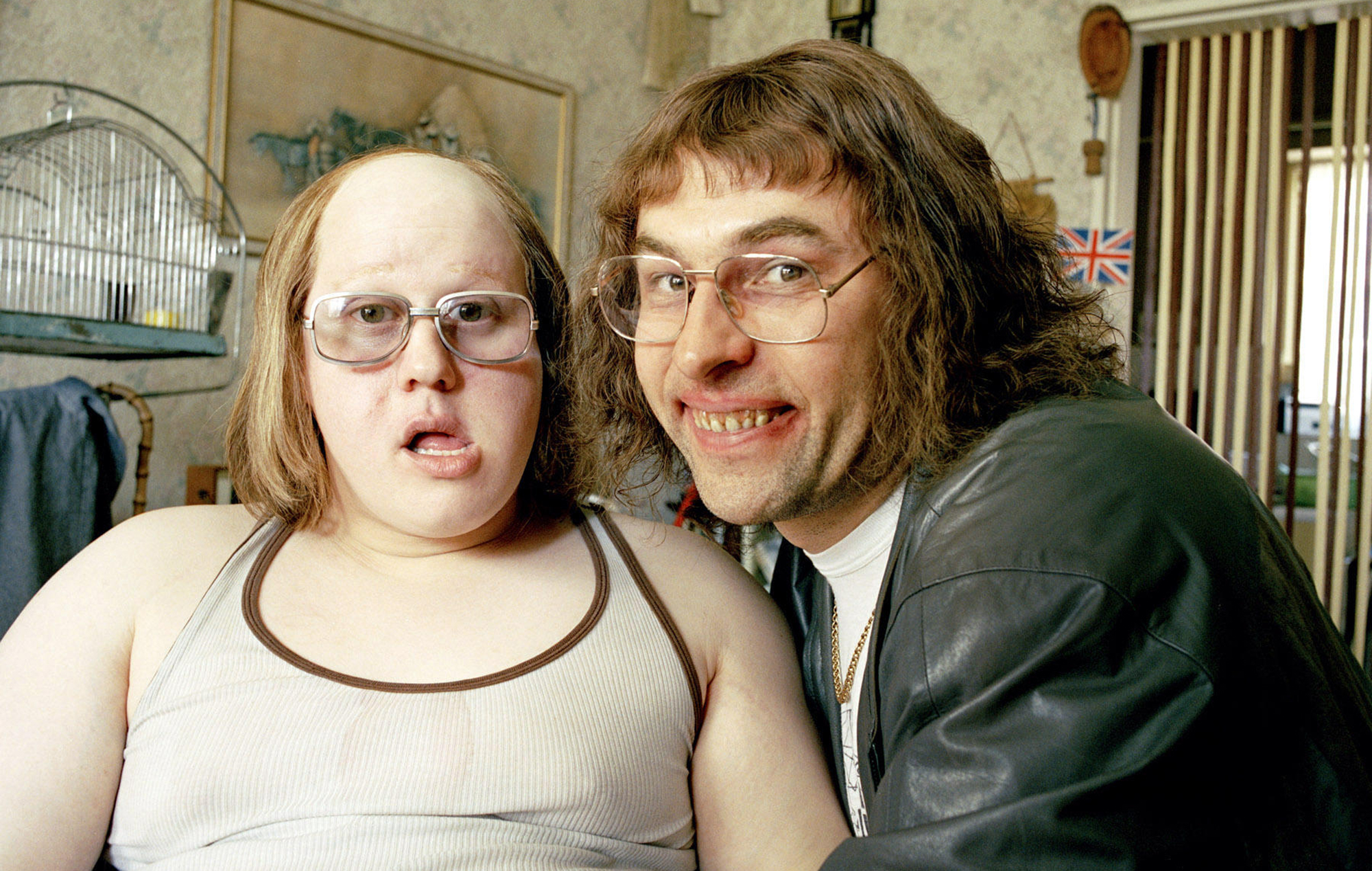
Little Britain. Credit: BBC
Not that it hadn’t tried. As That Mitchell and Webb Look ended in 2010, the cruelly underrated Watson and Oliver emerged as the would-be successors to the BBC Two double-act title. Media attention made much of the non-maleness of the duo; several outlets (lazily) asked if they would be the next French and Saunders. Even in 2012, however, public and critical fatigue with the format started to show. The Independent called it ‘old-fashioned.’ The Guardian and The Mirror basically agreed. And just like that, the classic Surname and Surname comedy duo was killed dead.
Since then, however, the medium has been quietly diversifying on the comedy fringes. Famalam, a delightfully satirical show with a primarily black British cast, managed three whole series on BBC Three from 2018-2020. Promising double-act Lazy Susan were given six 15-minute episodes last year, following an acclaimed pilot in 2019 (again, on BBC Three). Alternative sketch duo Ellie and Natasia got exactly the same deal in 2022.
But still, there’s little sense that any of these shows are cutting through into mainstream appeal. While shows like Monty Python’s Flying Circus and That Mitchell and Webb Look are often clipped, screenshotted and memed to death on social media, the various straight-to-BBC-Three online offerings are nearly impossible to find outside of niche comedy circles. Even high-profile revivals like Britbox’s Spitting Image are languishing in anonymity.
On the face of things, it’s not hard to see why the format’s become such a hard sell. Modern sketch shows, with audiences less forgiving of cheap sets and dodgy wigs, are an increasingly pricey endeavour, with more costumes, locations, and a greater variety of props and effects needed than most sitcoms or dramas. While Netflix can just about afford to give Jamie Demetriou a 50-minute sketch special, are the BBC or ITV willing to pump millions into a primetime sketch show on a major channel? Are they heck.
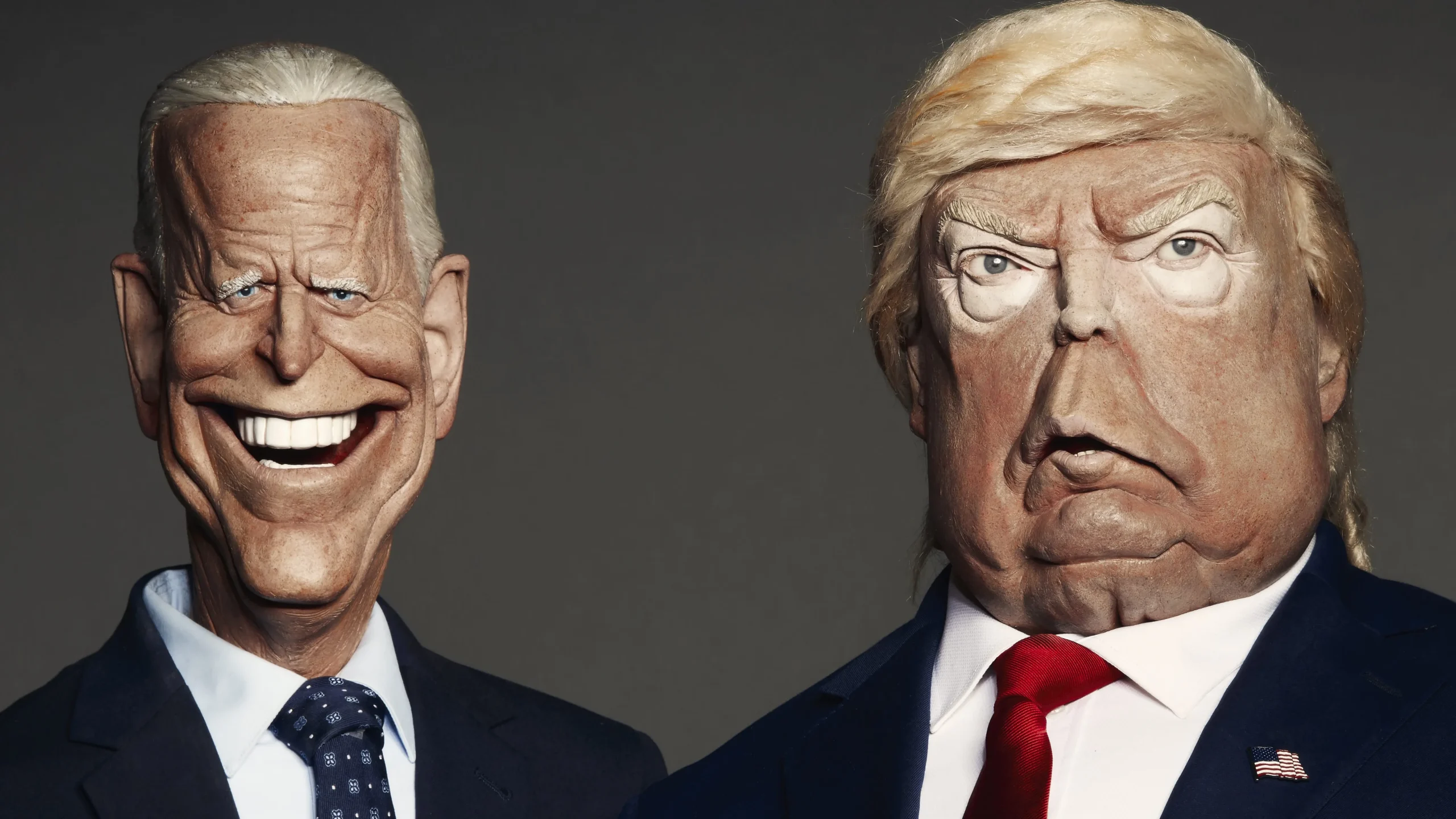
Spitting Image. Credit: Britbox
The way people absorb comedy has changed beyond recognition in the last decade or so, but the sketch show has proved pretty resistant to reinvention. The League of Gentlemen, with its deluge of recurring characters and specifically creepy tone, felt justifiably different to the other comedy offerings of the time. The same long-ish form premise entered the mainstream a few years later with Little Britain – but the controversial legacy of that series might just have killed off any hopes of a new show building on the formula.
And now, with low to no-budget skits vying for attention on phones, watches and smart fridges across the land, there seems to be little reason to pay a well-known comedian the big bucks for a compilation of the stuff folks put on the internet for free.
So of the non-British shows that make it to production, what do they have in common? It seems to be a pretty particular sense of humour. Aunty Donna’s Big Ol’ House of Fun and I Think You Should Leave possess a level of absurdity and a sort of maximalism that feels about as different from traditional British sardonicism as it’s possible to be. It’s the same sort of humour that propelled Everything Everywhere All At Once to win Best Picture at the Oscars, and more and more, it’s entering the mainstream in a way most British shows can’t.
Is the British sketch show just past its time, then? Has comedy moved past two folks swapping witty barbs dressed as Roman legionaries? As with all things, there’s a cyclical nature to comedy. Maybe one day, the sketch show will fall back into fashion. Maybe one day, the BBC will take a chance on another up-and-comer with a series of tightly written, 3-5 minute dreams. For now, though, the time of the Great British sketch show seems to have passed. And, barring some miracle of programming, it doesn’t look like it’ll be back any time soon.

